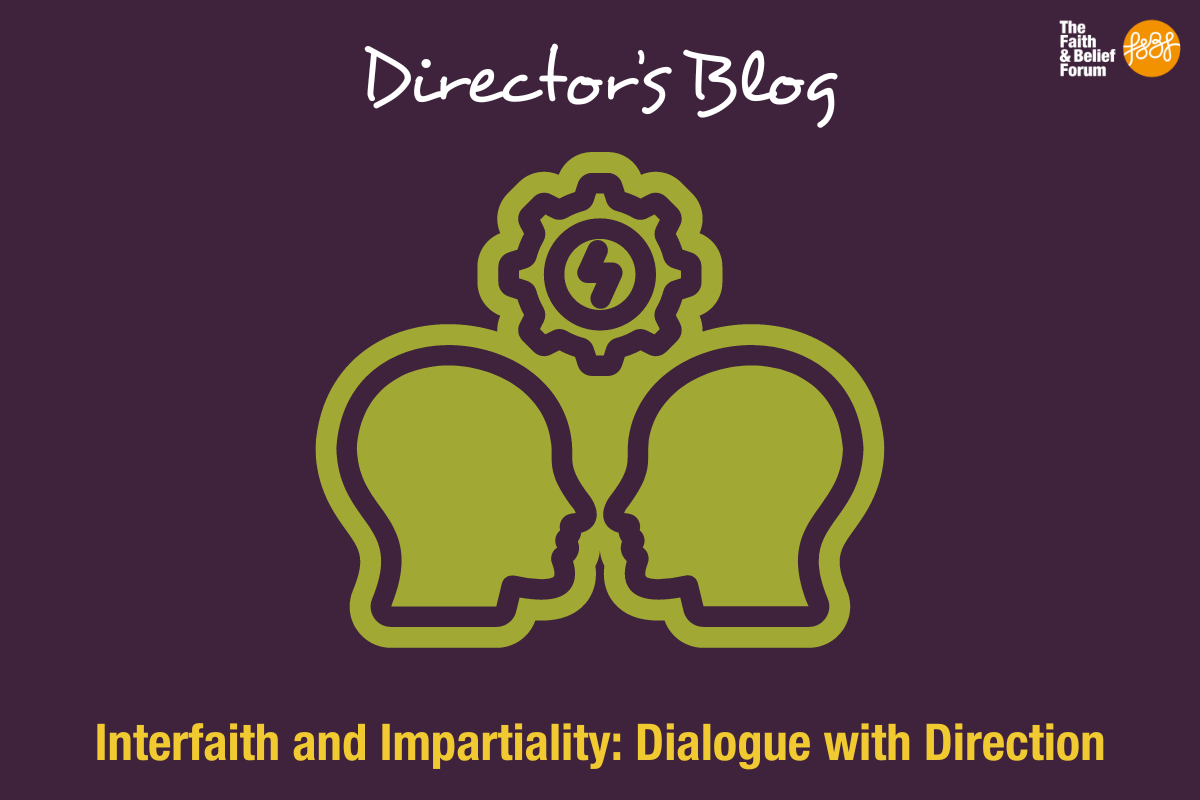
Challenging Faith Based Hate: True Stories
16 / 02 / 24
Menu

16 / 01 / 23

2023 – the year for a new ‘Faith Compact’?
There is much on our minds at F&BF as we set off into 2023. We are busy making plans to strengthen our work with schools, universities, communities, and workplaces – preventing future hate crime and prejudice in our society.
Overlaying these programmes is the ongoing issue of partnership with state institutions. Yes, we must work to strengthen relations between people of different faiths and beliefs at the local level, but we must also work on state/civil society relations to help progress this. So, a priority for us as we step into 2023 is the government’s Faith New Deal Pilot scheme[1] which we are part of, and which aspires to forge a new ‘Faith Compact.’ What kind of Faith Compact can best help deliver cohesive societies in a UK currently facing the fallout of war between Russia and Ukraine, a hike in the cost of living, a fracturing NHS, the ongoing climate crisis, and rising hate crime?
We are someway off being able to answer this complex question. There has been some good research by the Belong Network here in the UK that evidenced the link between high levels of social cohesion and state investment during the pandemic[2], through the government’s then strategy of targeting and resourcing five ‘integration areas.’ Having said this, we know that funding is in short supply and there are many demands on the state coffers. The answer then isn’t only about how much, but how?
The most recent iteration of social cohesion policy is tied up with the Levelling Up narrative and narrowing the North/South divide[3]. Here the value of faith and belief to the levelling up of economic and social opportunity is well buried. The Faith New Deal Pilot scheme is arguably a more visible vehicle for state thinking on faith and social cohesion (triggered by the Kruger report[4] at the height of the pandemic). F&BF’s work as part of this scheme is focussed on developing approaches to engagement between local government and faith communities in Solihull, based on the co-production of strategies that tackle social need.
There are two broad, interconnected issues at play here. The role of the state in creating cohesive societies, and the handling of faith and belief in the process. Historians will remind us that over the centuries and particularly through the enlightenment in Western Europe, the state has gradually replaced organised religion as the arbiter of what’s right and wrong. The relationship between these two entities remains uneven across the globe, with neither state nor religious institutions always portrayed in a positive light. But despite the realisation that religion can be a force for conflict and polarisation, it is also a force for positive development and for engaging with ambiguity rather than reinforcing positions. Indeed, religion is seen as more important now to the task of facing an increasingly diverse world than it was 25 years ago, although far more work has been done on understanding ethnic diversity than religious diversity. From an F&BF perspective I feel we are gradually winning this one – the recognition that faith and belief identity is central to social cohesion policy and practice.
The tension inherent in the dynamic between state policy on social cohesion and faith is entwined in the secular nature of the state and how it sees its role in providing freedom of religious expression. There is more to secularism than the absence of a state religion. Secularism also involves the strict separation of the state from religious institutions and the equal treatment of all citizens under the law, whatever their religion or belief. For a more comprehensive discussion of this I would refer the reader to Andrew Copson’s Secularism: A very short introduction[5], and to Charles Taylor’s interpretation of ‘open’ and ‘closed’ secularism[6]. The point worth making here is that there are different versions of secularism. Consequently, the way faith is handled by the state varies.
As F&BF progresses with its Faith New Deal Pilot project and the UK government gradually develops its thinking on a ‘Faith Compact’ I hope there will be space to draw on different experiences to improve how diverse faith and belief identities find expression and are treated in our society. The recent 2021 Census data on religion offers important background in that it points to an increasingly diverse and complex faith and belief landscape in England and Wales, including generational differences, a decrease in those describing themselves as Christian, and an increase in those describing themselves as non-religious. As attitudes to faith and belief identity change, so must the relationship between faith & belief communities and state institutions.
It is timely, therefore, to develop a new Faith Compact. The task of forging one will require:
The persistent and steady rise of hate crime in the UK (those targeting Muslims rose to 3,459 in the year ending March 2022, a rise of 42%, and the total of 8730 religiously motivated hate crimes represents an increase of 37%) points to the urgent need for such a Faith Compact. We look forward to playing our part through 2023.

16 / 02 / 24

15 / 02 / 24

16 / 01 / 24